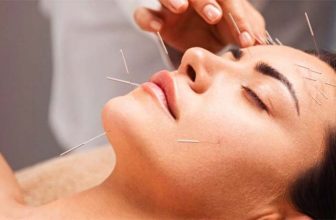
Marvin Gaye said in a song, “Music is the soul of the man, Music makes a happy day, Music makes the clouds roll by, baby“. (That was from “I’ve Got My Music -original version of “Turn On Some Music” from 1982, in case you were wondering!) The power of music has profound effects producing a natural high, which can be particularly enhanced for people who refrain from taking sensory-dulling drugs, smoking and drinking (and even they enjoy music, of course).
Try and find someone who doesn’t like music, and you’ll never find that person – why? Because everyone loves music! Whether it be pop, classical, rock, new age, jazz, pop, metal, opera, country, church, religious or evangelical etc. Read on for Music: 5 Keys to Unlock Your Natural High!
Digging into a little history, we find that Christian Johann Heinrich Heine, a German poet, writer and literary critic birthed the term Lisztomania (euphoric emotion) in the Victorian era. Medical practitioners during this time considered Lisztomania to be a manic mental disorder as a consequence of increased arousal levels in people with manic propensities.
Initially, Lisztomania was used to describe fans’ obsession with the music made by Hungarian composer and pianist Franz Liszt. Today, Lisztomania is used to describe one who needs to constantly listen to music and it does not have the stigma attached to the term as was evident yesteryear, now over to the list…
1. Music Fuels Your Life with a Natural High
Music offers comfort to many people. Music therapists use music with children with conditions such as autism, to people who have endured traumatic psychological and physical experiences; fighting in the army (PTSD) could cause these factors. Music can be used before, or during a vital surgical operation, and to build up adrenaline prior to an athlete anticipating his or her record performance, or to mitigate anxiety, or stress. Music feeds the body which is infinitely more complicated than scientists realise.
2. Music Makes You Happy
Need an emotional antidote or a mood boost for a natural high? Well music releases dopamine. As a neurotransmitter, dopamine mediates one’s mood and encourages sentiments of elation.
3. Music Encourages a Better Workout
Listening to music can dramatically improve your training and workouts, giving you a natural high. The stimulation of listening to our favourite songs, can enhance our performance. Imagine, doing sit-ups, or running while listening to your favourite playlist. With music, you get lost in your own world. This is beneficial as this immersion in the music you are listening to can be a brilliant distraction and inspire you to intensify your training; do more in less time or go that extra 2% distance because you are so focused and enjoying your favourite songs.
4. Playing an Instrument Gives You a Natural High!
Learning to play an instrument utilises nearly every part of the brain. Using Functional Magnetic Resonance Imaging (FMRI) and Positron Emission Tomography (PET) scans, studies have demonstrated that when music was played simultaneously during these scans, different parts of the brain were illuminated by sound. For more information on imaging scans, visit W-Radiology.
The brain processes sound instantly and to understand factors such as melody and rhythm, the brain unpacks these typologies, then unifies them for our listening experience. Scientists have found that when instrument players are scanned with the same technology, that the body is found to be highly stimulated with a wide spectrum of brain activity – it’s a workout that harnesses, in particular the motor, visual and auditory cortices.
With diligence and mastery, the art of playing an instrument, perhaps taking music lessons, strengthens the brain’s functions which is highly transferable to other activities such as word puzzles, chess, or dancing, choreography and martial arts for example.
5. Music Helps You Sleep
North American countries such as the US indicate that over 30% of the population suffer from insomnia. In the UK, approximately 31% of the adult population are affected by sleepless nights and a staggering 67% of the UK population experience disrupted sleep.
Listening to classical or other harmonious music at least one hour before heading to bed can help ease muscle tension, allowing the body to relax and slow down by reducing cortisol, a sleep–stifling hormone.
Additionally, music can release sleep-enhancing hormones such as oxytocin and serotonin. Globally, 90% of people that suffer from depression, also suffer from insomnia, so listening to music can not only improve sleep, but can also help lift one’s mood. This leads us conveniently onto the next benefit of music; music makes you happy.









